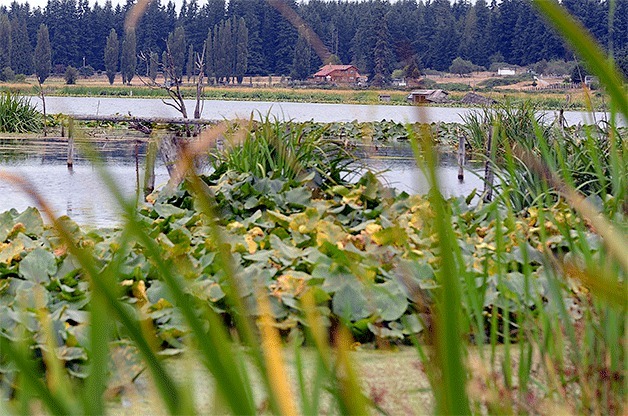No one is happy with fish and wildlife protection regulations approved Monday, but Island County commissioners are saying they’re a starting point.
“I understand people’s frustration with this,” said Commissioner Jill Johnson. “I straight up get it.”
The ordinance update was required as part of the state’s Growth Management Act, and the county has held a total of 30 public meetings over the last year. Its aim is to protect the state’s fish and wildlife such as salmon- bearing streams and wetlands.
Farmers have been unhappy with the update because they need to be able to maintain irrigation ditches that may also require strict governmental oversight due to the presence of crucial wetlands or animal habitat.
Farmers pressed commissioners to provide an exemption for existing and ongoing agriculture, but county staff said such an exemption would run afoul of the state requirements.
“I can’t believe you guys are trying to regulate the ongoing and existing agriculture so much,” said Central Whidbey farmer Len Engle Monday.
Steve Erickson, a representative of Whidbey Environmental Action Network, or WEAN, said that the ordinance was a step in the right direction, but there are still shortcomings.
WEAN members made it clear that, if the document were adopted in its current state, they would appeal the decision to the GMA hearings board.
Johnson pointed out that the policy decisions were made on the state level and the counties are simply required to implement them.
She called out what she described as overly protective environmentalists “who are not looking for compromise at all” and warned that when things become too strict, “people will start to circumvent the compliance process.”
Commissioner Helen Price Johnson stressed that this update begins the larger process of updating the county’s Comprehensive Plan when the issues raised can be reviewed and updated if needed.
Even though the county missed its deadline with the state by a few weeks, Price Johnson said she was glad they took the extra time for public comment.
“Taking the extra time made for a better ordinance,” Price Johnson said.
“It’s going to be a complex issue for us,” she said. “Our critical areas are vital, and it’s incumbent on us to do this right.”
Price Johnson also expressed her frustration with environmentalists like Erickson who have threatened to file law suits if the regulations are not protective enough.
Price Johnson said the county needed to be able to go through this process “without having to position ourselves against potential litigation.”
South Whidbey farmer Ray Gabelein said he believes the ordinance will put farmers out of business and create a “domino effect” where ditches will not be maintained, wetland-creating floods will occur and more regulation will be required.
“This will absolutely drive people out of business,” Gabelein said.
Gabelein also urged commissioners to make it a priority to create a ditch- cleaning manual with best management practices so that farmers could remain compliant and keep costly inspections to a minimum.



